
Why Some Companies Are Replacing Their CIO
 Why Some Companies Are Replacing Their CIO
Why Some Companies Are Replacing Their CIO
Dissatisfaction with leadership and tech support has prompted many organizations to replace a CIO. Find out how you can reverse these negative sentiments.
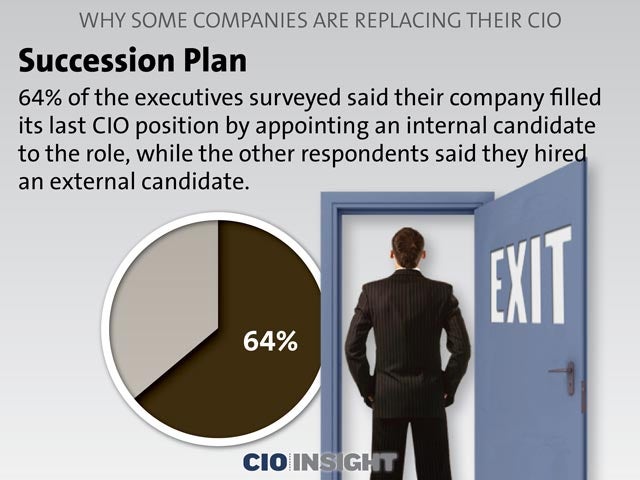 Succession Plan
Succession Plan
64% of the executives surveyed said their company filled its last CIO position by appointing an internal candidate to the role, while the other respondents said they hired an external candidate.
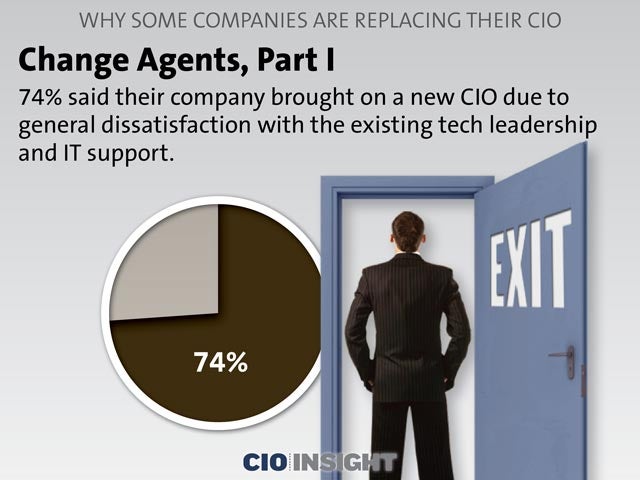 Change Agents, Part I
Change Agents, Part I
74% said their company brought on a new CIO due to general dissatisfaction with the existing tech leadership and IT support.
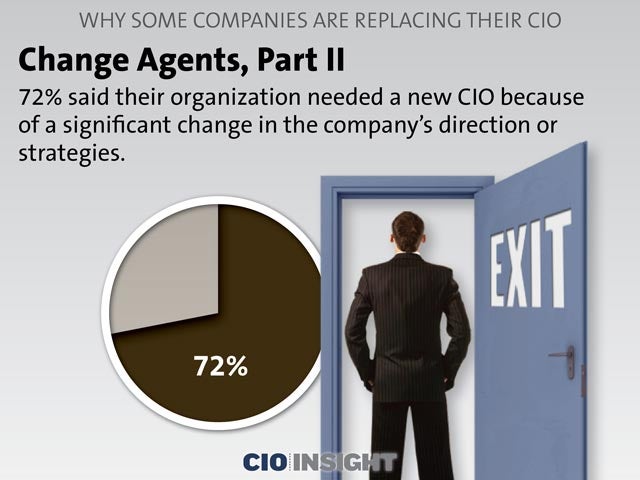 Change Agents, Part II
Change Agents, Part II
72% said their organization needed a new CIO because of a significant change in the company’s direction or strategies.
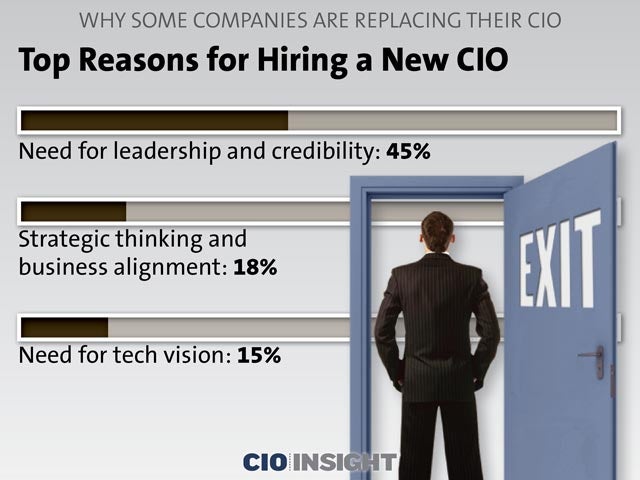 Top Reasons for Hiring a New CIO
Top Reasons for Hiring a New CIO
Need for leadership and credibility: 45%,
Strategic thinking and business alignment: 18%,
Need for tech vision: 15%
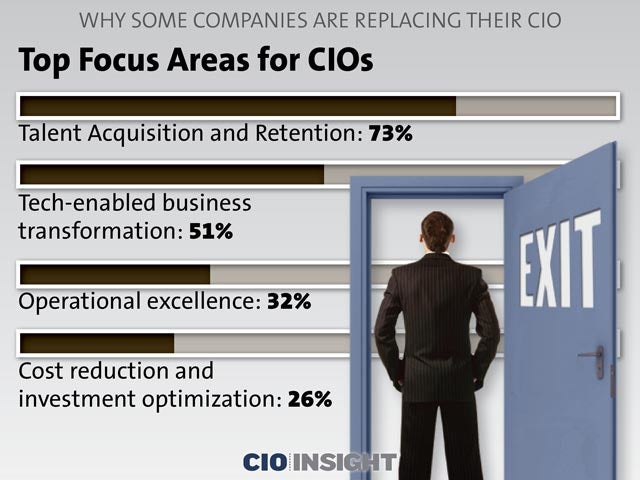 Top Focus Areas for CIOs
Top Focus Areas for CIOs
Talent Acquisition and Retention: 73%,
Tech-enabled business transformation: 51%,
Operational excellence: 32%,
Cost reduction and investment optimization: 26%
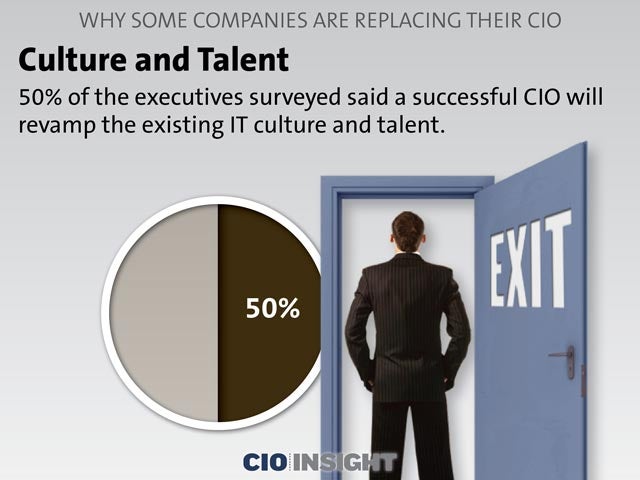 Culture and Talent
Culture and Talent
50% of the executives surveyed said a successful CIO will revamp the existing IT culture and talent.
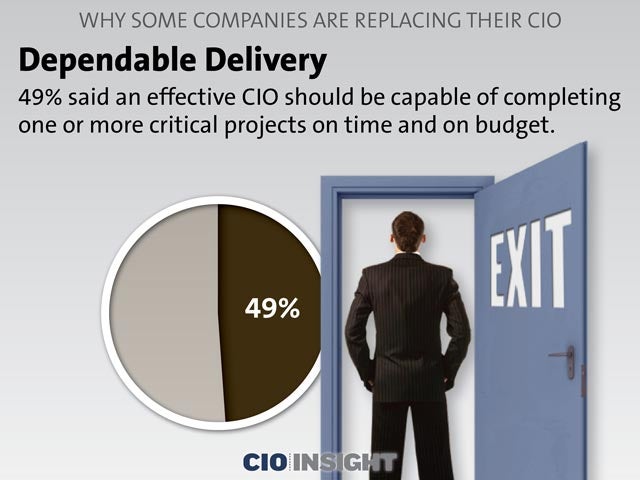 Dependable Delivery
Dependable Delivery
49% said an effective CIO should be capable of completing one or more critical projects on time and on budget.
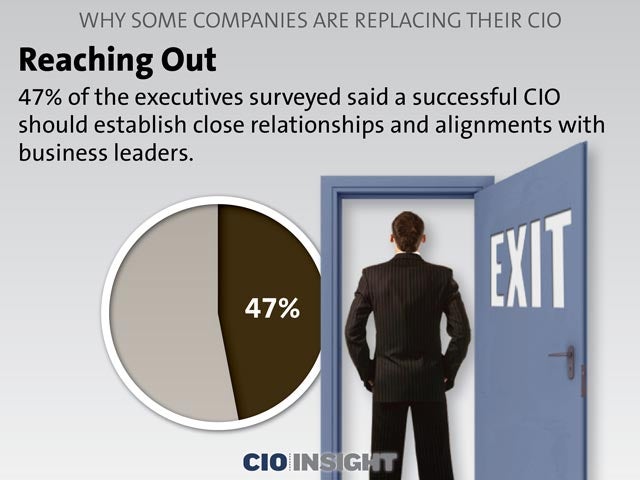 Reaching Out
Reaching Out
47% of the executives surveyed said a successful CIO should establish close relationships and alignments with business leaders.
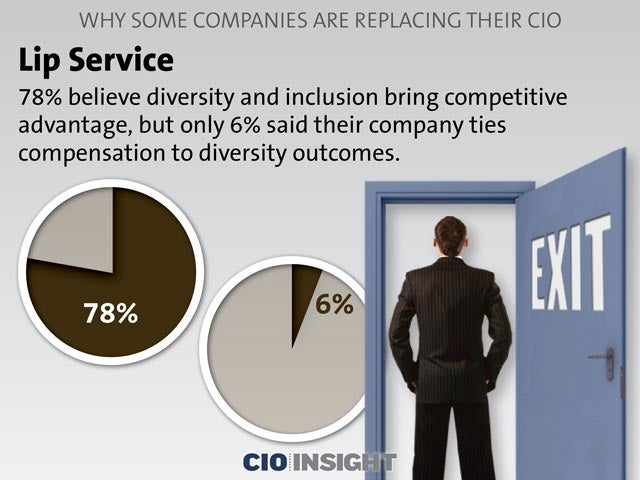 Lip Service
Lip Service
78% believe diversity and inclusion bring competitive advantage, but only 6% said their company ties compensation to diversity outcomes.